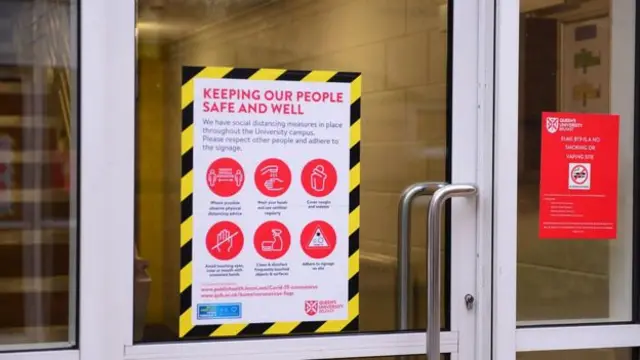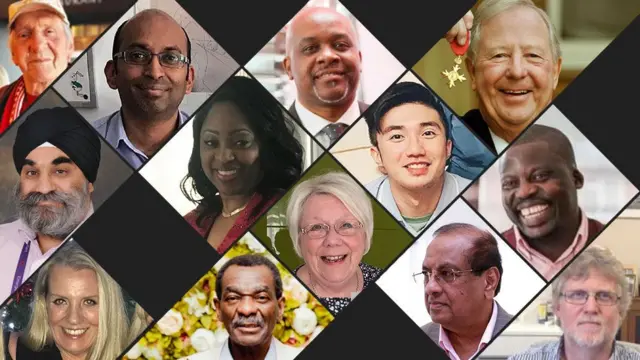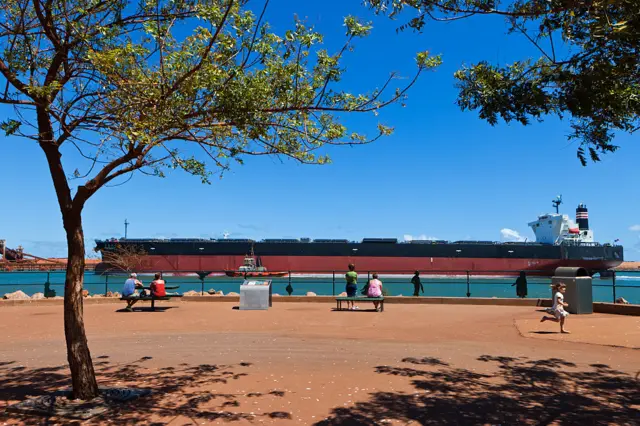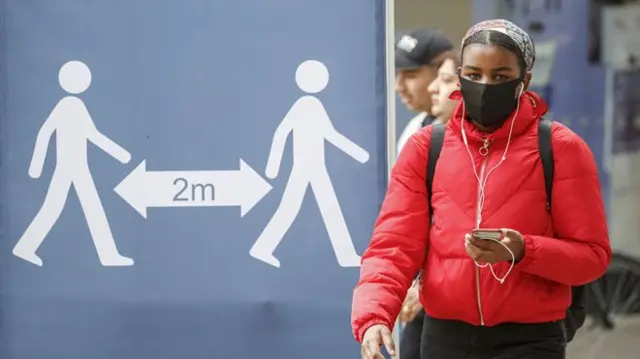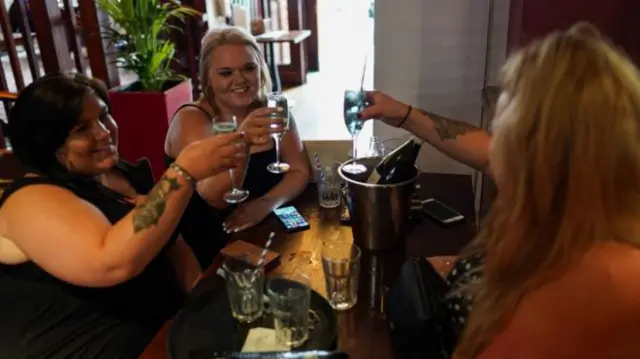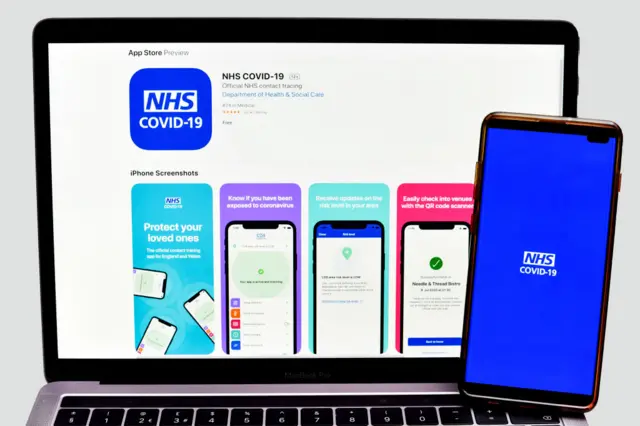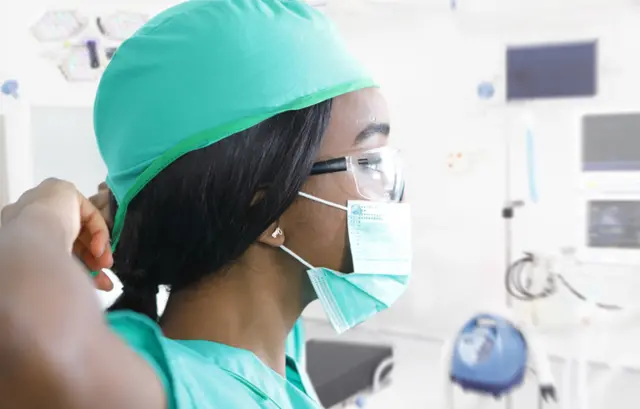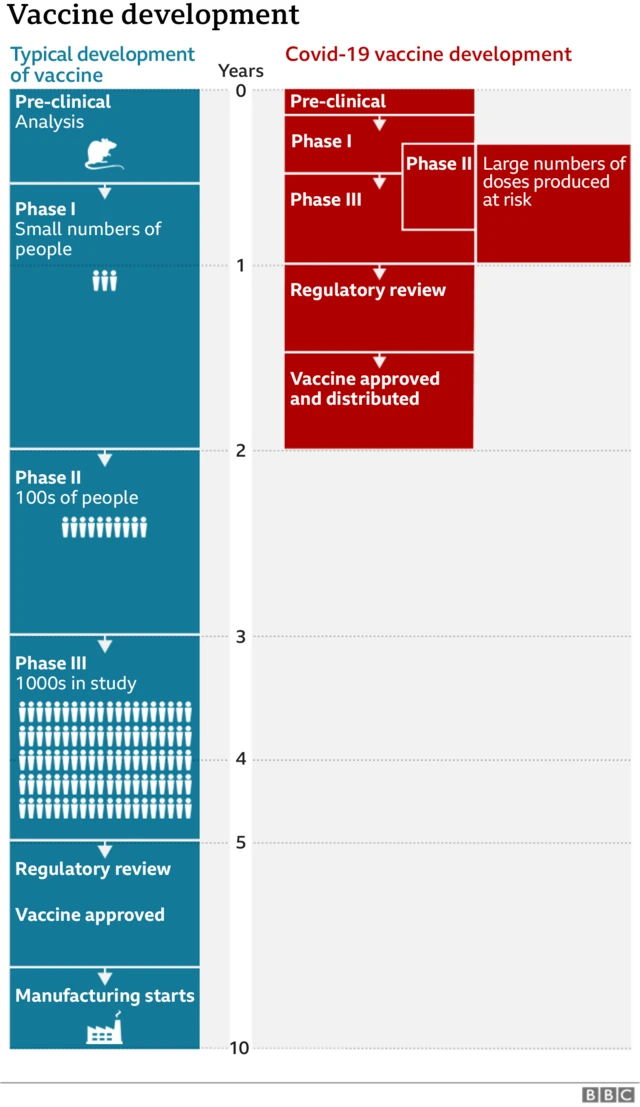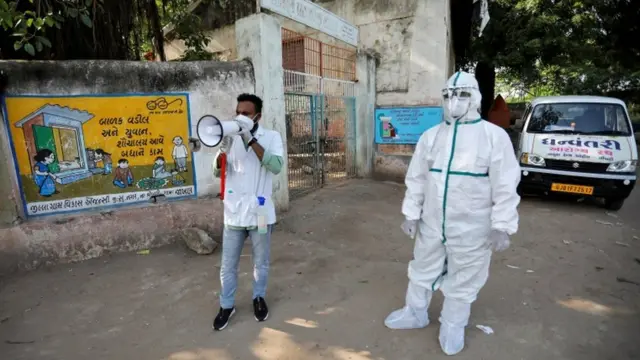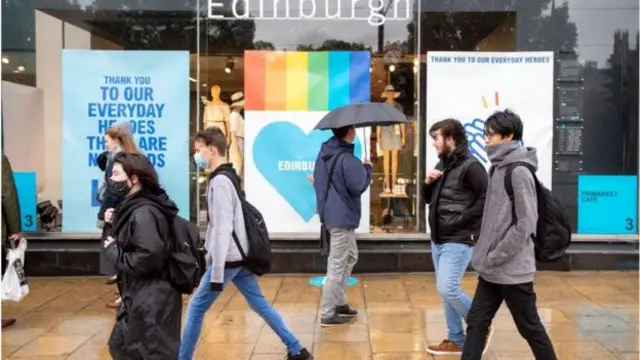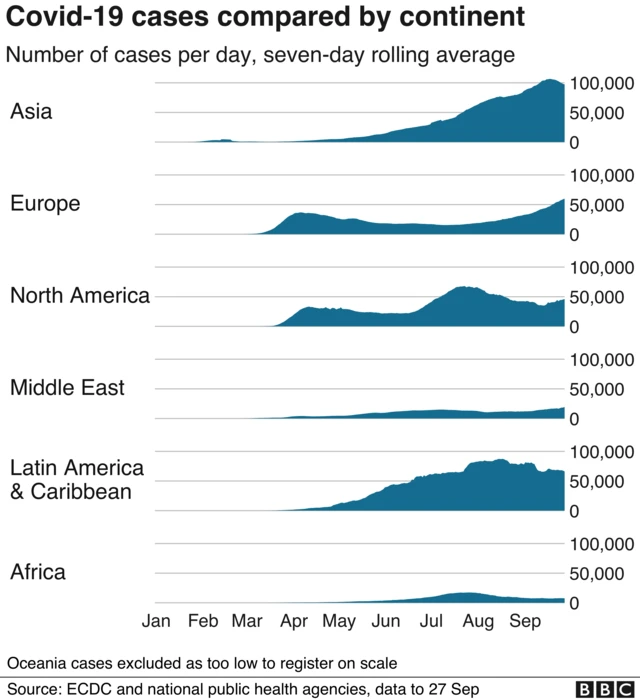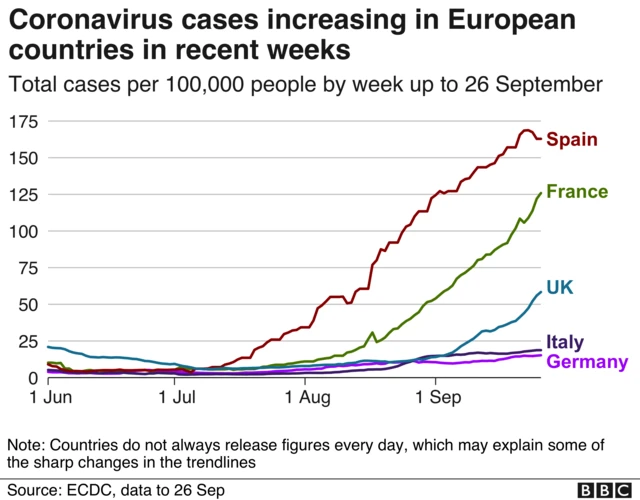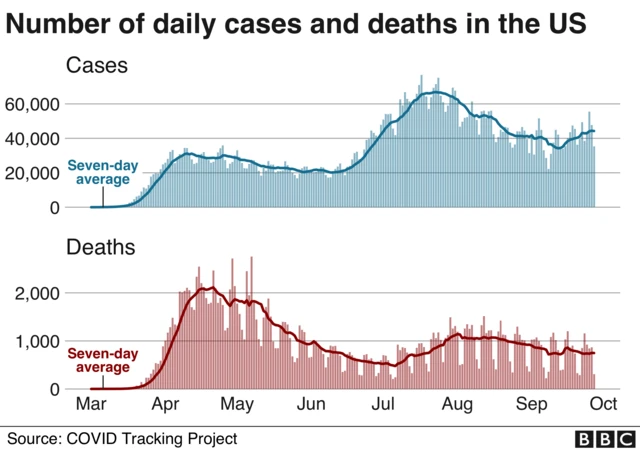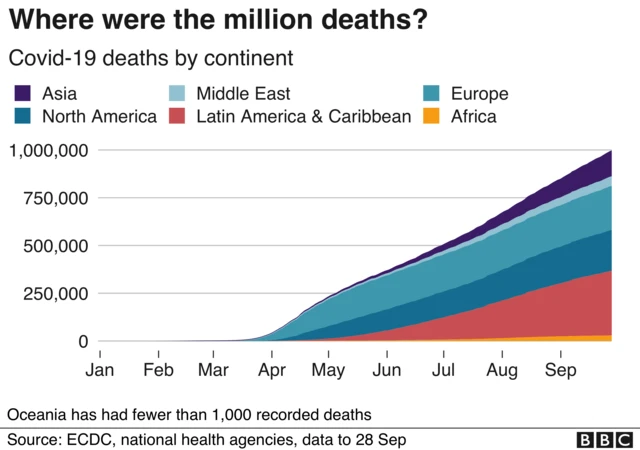New York positive test rate climbspublished at 09:23 BST 29 September 2020
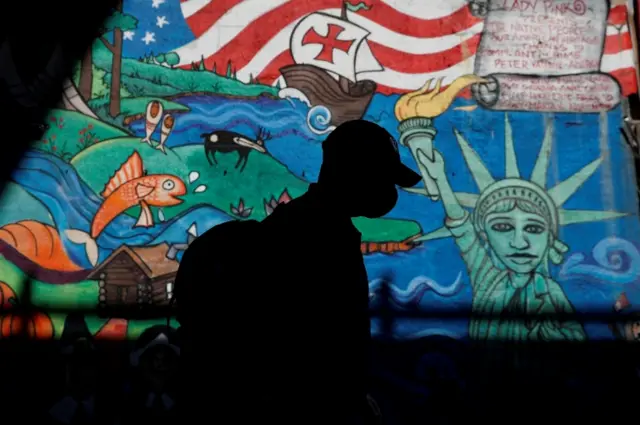 Image source, Reuters
Image source, ReutersNew York was the early epicentre of the outbreak in the US
New York was the early epicentre of the pandemic in the US. At one point in April the state had recorded more coronavirus cases than any single country, and it took authorities months to bring infection rates down.
On Monday, however, Governor Andrew Cuomo warned that the percentage of Covid-19 tests coming back positive has risen to 1.5% - a worrying trend for the state, where previously the number had hovered around 1%.
Health authorities said rates had risen at “an alarming rate” in some neighbourhoods, particularly in the New York City boroughs of Brooklyn and Queens. Officials are still trying to find a reason for the clusters, Mr Cuomo told reporters on Monday.
It is part of a surge in cases throughout the US. Latest figures show the country is reporting around 45,000 cases a day, compared with 40,000 a week ago and 35,000 two weeks ago. New cases have risen for two weeks in a row in 27 out of the 50 US states, according to Reuters news agency.
